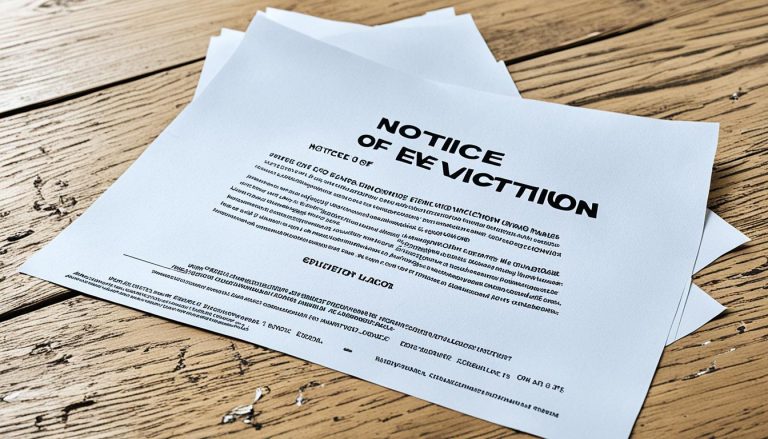In this flexible leasing guide, we will explore the benefits, considerations, and procedures involved in rolling contract tenancies. Whether you are a tenant or a landlord, this guide will help you navigate the world of rolling contract tenancies and make informed decisions.
What is a Rolling Contract Tenancy?
A rolling contract tenancy, also known as a periodic tenancy, offers flexibility for both tenants and landlords. It is an agreement that continues on a rolling basis, usually with one month’s notice required from both parties to end the tenancy. This type of tenancy is ideal for tenants who want the freedom to move out with relatively short notice and for landlords who want to keep their options open for future tenants.
How to End a Rolling Contract Tenancy?
Ending a rolling contract tenancy is relatively straightforward compared to a fixed-term tenancy. Both the tenant and the landlord can give one month’s notice to end the tenancy, and there is no need for a specific reason to terminate the agreement. This flexibility allows tenants to adjust their living arrangements as needed, while landlords can easily find new tenants if necessary.
It’s important for both parties to communicate and provide written notice to ensure a smooth transition. Additionally, if there is a break clause or an option for lease renewal in the tenancy agreement, these terms should be followed accordingly.
By providing proper notice and following the terms of the tenancy agreement, tenants and landlords can successfully end a rolling contract tenancy and move on to their next arrangements.

Continuing a rolling contract tenancy is simple and seamless with the mutual agreement of both parties involved. Tenants have the freedom to adjust their living arrangements as needed, while landlords can easily find new tenants if necessary. By maintaining open communication and following the terms of the tenancy agreement, the process of ending a rolling contract tenancy can be hassle-free.
Rent Increases and Notice Periods for Rolling Contract Tenancies
In a rolling contract tenancy, landlords have the option to increase rent, but this must be done with proper notice. It is important for landlords to provide at least one month’s notice before implementing a rent increase. This gives tenants ample time to review the new rental amount and make any necessary adjustments to their budgets. By following this notice period, landlords ensure that tenants have sufficient time to prepare for the change in rental cost.
When increasing rent in a rolling contract tenancy, it is crucial for landlords to consider fairness and comparability to local rental rates. Rent increases that align with average local rents reduce the likelihood of disputes with tenants and create a transparent and equitable rental environment.
Effective communication between landlords and tenants is key to smooth rent increase transitions in rolling contract tenancies. By providing proper notice, landlords establish clear expectations and minimize any potential confusion or surprises for tenants. Open dialogue allows both parties to discuss and address concerns, ensuring a cooperative and positive landlord-tenant relationship.

Key Points:
- Landlords must give one month’s notice before increasing rent in a rolling contract tenancy.
- Consider fairness and comparability to local rental rates when implementing rent increases.
- Open communication between landlords and tenants is crucial for a smooth transition.
Benefits and Considerations of Rolling Contract Tenancies
Rolling contract tenancies offer numerous benefits for both tenants and landlords. This type of tenancy provides a flexible rental agreement, allowing tenants to adjust their living arrangements to their changing needs and circumstances. With an ongoing rental agreement, tenants have the freedom to stay in the property for as long as they desire, without the need for fixed-term commitments. This flexibility is particularly valuable for individuals who anticipate changes in their personal or professional lives and need a more adaptable housing arrangement.
For landlords, rolling contract tenancies present lease renewal options and the opportunity to re-evaluate rental agreements. They can easily adjust rent prices based on market trends or changes in property condition, ensuring that the rental income remains competitive and aligned with current market value.
Moreover, the indefinite term tenancy of a rolling contract allows landlords to have greater control and flexibility over their properties. They can readily find new tenants if needed, offering a seamless transition from one tenancy to the next without prolonged vacancies.
However, it’s essential to consider the drawbacks of rolling contract tenancies. While they offer flexibility and ongoing rental agreements, they may not provide the same level of long-term security as fixed-term tenancies. Tenants should carefully consider their future plans before entering into this type of agreement, as it may not be suitable for those seeking long-term stability in their housing arrangements.

Conclusion
Rolling contract tenancies offer flexibility and adaptability for both tenants and landlords in the UK rental market. With a rolling tenancy agreement UK, tenants have the freedom to adjust their living arrangements to meet their changing needs, while landlords can easily find new tenants if necessary.
While a rolling contract tenancy may not provide the same long-term security as a fixed-term tenancy, it is a popular option for those seeking flexibility in their leasing arrangements. Whether it’s an example of a rolling contract tenancy or a specific agreement, understanding the rights and obligations of both parties is crucial to ensure a smooth and successful tenancy.
For tenants, this type of tenancy offers the opportunity to make changes with relatively short notice and avoid being tied down to a fixed-term commitment. Landlords, on the other hand, benefit from the freedom to re-evaluate rental agreements, adjust rent prices, and easily find new tenants if needed.
By maintaining open communication and understanding the terms of the rolling contract tenancy agreement, both tenants and landlords can navigate this flexible leasing option to their advantage.
FAQ
Can a landlord refuse a rolling contract?
Technically, yes, a landlord can refuse to offer a rolling contract. However, it is important to understand the benefits of this type of contract for both landlords and tenants. With a rolling contract, there is no fixed term or end date, meaning that both parties have more flexibility in terms of ending the agreement or making changes.
Is a rolling contract better?
Absolutely. A rolling contract offers flexibility and convenience for both landlords and tenants in the fast-paced world of property rentals. With a rolling contract, there are no fixed end dates or notice periods, allowing for seamless transitions and more control over your living arrangements.
Can I put the rent up on a rolling contract?
Yes, you have the right to increase the rent on your rolling contract as long as you follow the necessary legal steps. This includes giving your tenant a written notice stating the new rent amount and providing at least one month’s notice if they pay weekly or monthly, or at least six months’ notice if they pay yearly. It is important to note that any increase in rent must be fair and in line with current market rates.






